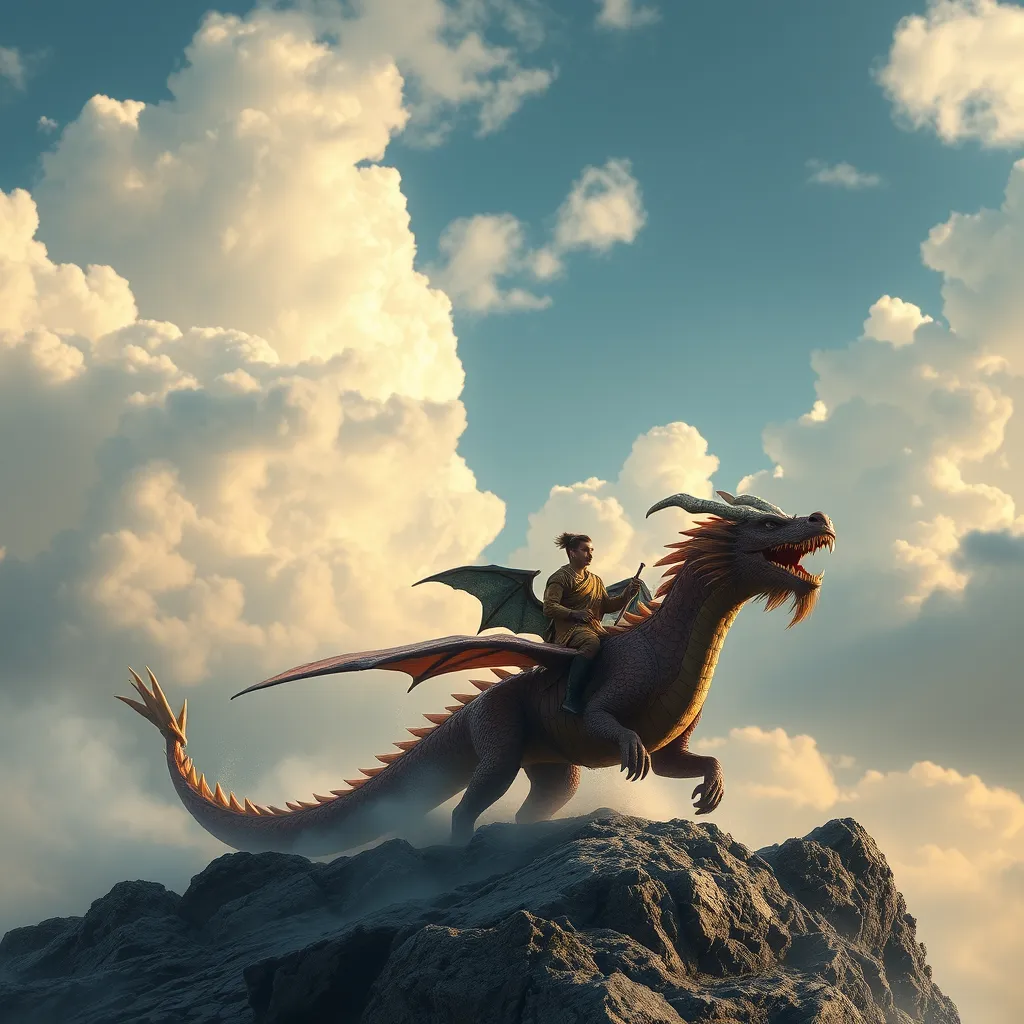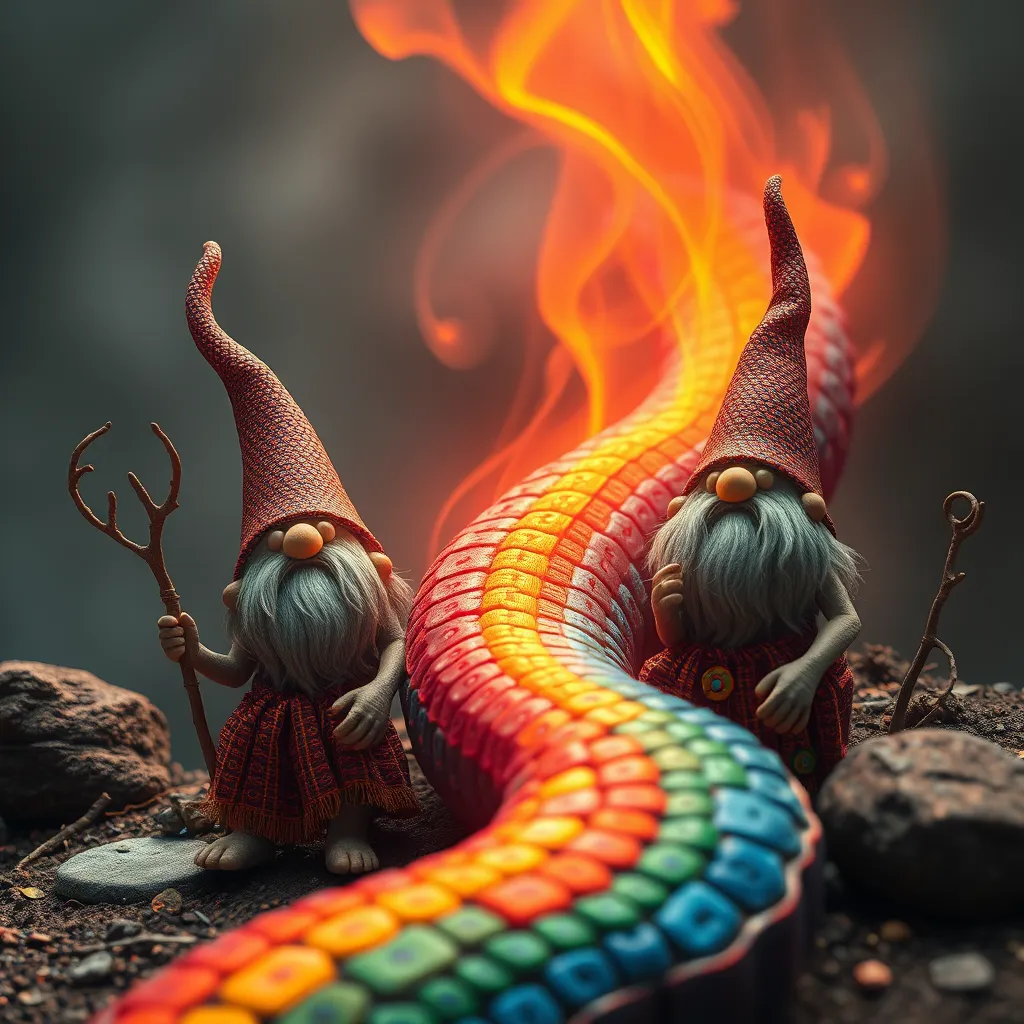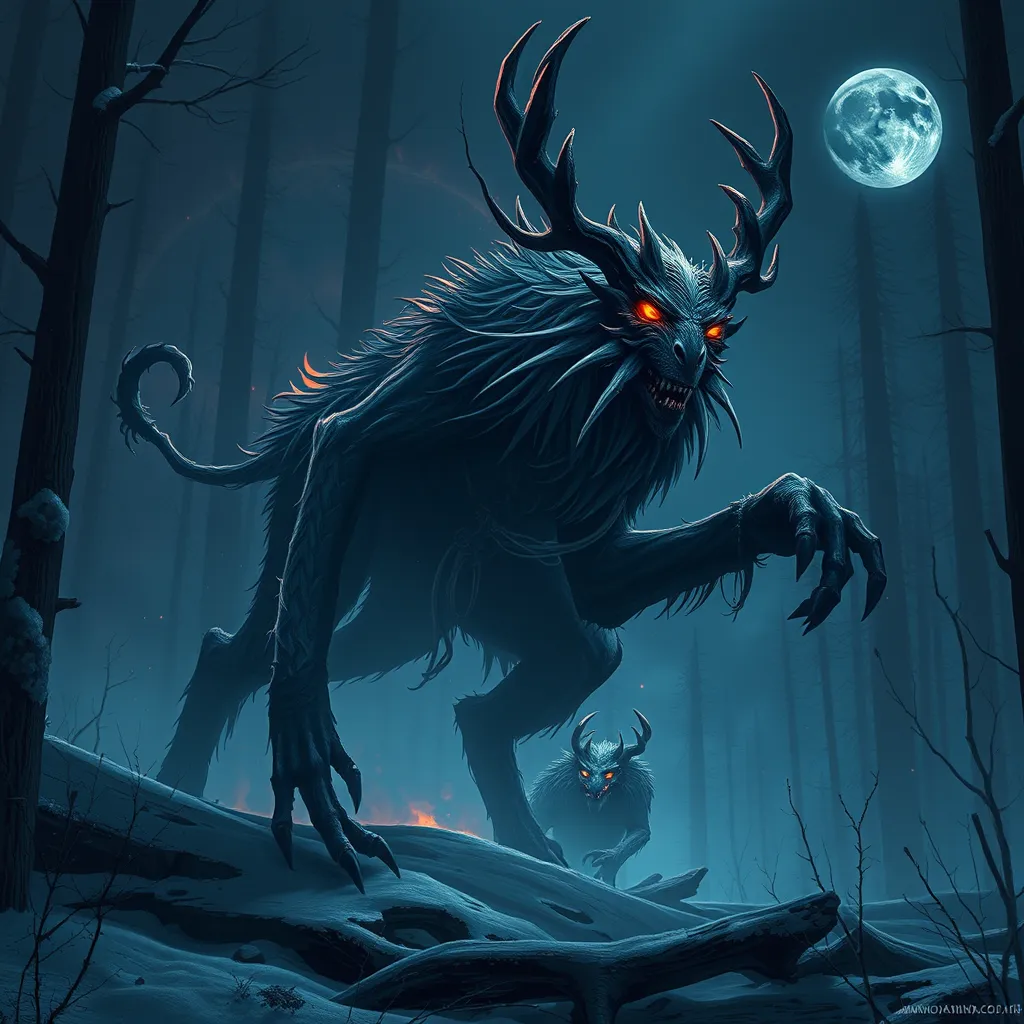Dragon Riders of the Skies: The Mythological Significance of Dragon Riders in Different Cultures
I. Introduction
Dragon riders have captured the human imagination across various cultures, serving as a powerful symbol of adventure, bravery, and the bond between humans and mythical creatures. In mythology, dragon riders are often depicted as heroes, champions, or guardians who harness the might of dragons, creatures that embody both chaos and wisdom. This article aims to explore the significance of dragon riders in different cultures, tracing their historical context, cultural variations, and the modern interpretations that continue to fuel our fascination with these legendary beings.
The symbolism of dragons is rich and varied. In some cultures, dragons are seen as benevolent protectors, while in others, they are fearsome adversaries. Understanding the duality of dragons and their riders illuminates the values and beliefs of the societies that created these myths.
II. Historical Context of Dragon Myths
The origins of dragon myths can be traced back to ancient civilizations, where they often represented the forces of nature, chaos, and the unknown. Over time, these myths evolved, influenced by cultural exchanges, trade routes, and the conquests that brought different peoples together. The concept of dragon riders emerged as a fascinating narrative device, allowing humans to engage with these formidable creatures in a way that mirrored their own struggles and triumphs.
- Origins: The earliest dragon myths can be found in Mesopotamian cultures, where dragons were depicted in art and literature as powerful deities.
- Evolution: As societies evolved, so did the stories of dragons, leading to the emergence of dragon riders in various mythologies.
- Cultural Exchange: The Silk Road and other trade routes facilitated the sharing of dragon lore, creating a rich tapestry of dragon rider stories across cultures.
III. Dragon Riders in Asian Mythology
Asian cultures have a deep and multifaceted relationship with dragons, often portraying them in a positive light. The idea of dragon riders appears prominently in various Asian mythologies.
A. Chinese Dragon Lore and the Concept of Dragon Riders
In Chinese mythology, dragons are revered as symbols of power, strength, and good fortune. The concept of dragon riders is often associated with emperors and noble heroes who are depicted riding dragons to showcase their authority and divine right to rule.
B. Japanese Myths Featuring Dragon Riders
In Japan, dragons are often associated with water and agricultural fertility. Myths about dragon riders, such as the legendary hero Yamato Takeru, highlight the bond between humans and dragons, emphasizing themes of courage and loyalty.
C. The Significance of Dragons in Hindu and Buddhist Traditions
In Hindu and Buddhist traditions, dragons often symbolize the forces of chaos that must be overcome. The concept of dragon riders can be seen in the stories of deities like Indra, who rides the dragon Vritra in his battle against ignorance and darkness.
IV. Dragon Riders in European Folklore
European folklore presents a contrasting view of dragons, often depicting them as malevolent creatures to be vanquished. This narrative has given rise to the archetype of the knight and dragon, where dragon riders emerge as heroic figures.
A. The Knight and Dragon Archetype in Medieval Literature
Medieval literature, particularly in the tales of King Arthur and Beowulf, features dragon riders who embody chivalry and valor. These heroes often face dragons as a rite of passage, proving their worth and bravery.
B. Scandinavian Myths and the Saga of Dragon Riders
In Norse mythology, dragon riders like Sigurd are celebrated for their courage in slaying dragons, symbolizing the triumph of good over evil. The sagas highlight the relationship between humans and dragons as complex and fraught with danger.
C. Celtic Tales and the Connection Between Dragons and Heroes
Celtic mythology also showcases dragon riders, where heroes like Fionn mac Cumhail are depicted battling dragons to protect their lands, emphasizing themes of heroism and sacrifice.
V. Indigenous and Tribal Representations
In contrast to the more structured narratives found in European and Asian mythologies, many indigenous cultures feature dragon-like creatures in their oral traditions, often embodying the spirits of nature.
A. Native American Myths Featuring Dragon-like Creatures
Some Native American tribes tell stories of serpent-like beings that can be interpreted as dragons, representing the duality of nature and the importance of harmony with the earth.
B. African Tribal Legends and the Symbolism of Dragon Riders
African mythology also features dragon-like creatures, such as the Mokele-Mbembe, with stories often revolving around the themes of balance between humanity and the spirit world.
C. Australian Aboriginal Stories of Sky Beings and Their Dragons
Australian Aboriginal cultures have tales of sky beings that ride dragons, representing the interconnectedness of the land, sky, and the creatures that inhabit them.
VI. Modern Interpretations and Popular Culture
The fascination with dragon riders has seen a resurgence in modern literature, film, and video games, reflecting contemporary values and the enduring appeal of these mythical beings.
A. The Resurgence of Dragon Rider Themes in Literature and Film
Recent works, such as “How to Train Your Dragon” and “Eragon,” have reimagined the relationship between humans and dragons, emphasizing themes of friendship, loyalty, and adventure.
B. Analysis of Popular Series Like “How to Train Your Dragon” and “Game of Thrones”
Both series depict dragon riders in contrasting ways: while “How to Train Your Dragon” explores a nurturing bond, “Game of Thrones” presents a more complex relationship marked by power struggles and moral ambiguity.
C. The Impact of Video Games on the Perception of Dragon Riders
Video games have also played a significant role in shaping the modern perception of dragon riders, with titles like “The Elder Scrolls” series allowing players to experience the thrill of riding dragons and engaging in epic battles.
VII. Symbolism and Themes Associated with Dragon Riders
The narratives surrounding dragon riders often explore deep themes and symbolize a range of human experiences.
A. The Relationship Between Humans and Dragons: Power, Friendship, and Conflict
Dragon rider stories often delve into the complex dynamics of power and friendship, illustrating how humans and dragons can work together or find themselves in conflict.
B. The Role of Dragon Riders as Symbols of Bravery and Adventure
Dragon riders are frequently depicted as brave adventurers, embodying the spirit of exploration and the quest for knowledge and understanding.
C. Environmental and Spiritual Themes in Dragon Rider Narratives
Many dragon rider stories incorporate environmental and spiritual themes, highlighting the necessity of respecting nature and the interconnectedness of all living beings.
VIII. Conclusion
The significance of dragon riders across cultures is profound, reflecting humanity’s enduring fascination with the mythical and the unknown. These tales not only entertain but also convey important lessons about bravery, friendship, and the balance between humans and nature. As we continue to explore and reinterpret these myths, we celebrate the rich tapestry of human imagination and the diverse traditions that have shaped our understanding of dragons and their riders.
In conclusion, the enduring appeal of dragon myths invites us to delve deeper into the stories of different cultures. By appreciating the diverse representations of dragon riders, we can foster a greater understanding of the values, fears, and hopes that define us as a species.




